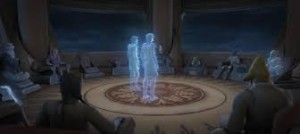What would a man do if he thinks he can possess unlimited power? Would a machine being as intelligent as a man, without any biological weakness of the human brain, have steadier wisdom, better judgments, or more benevolent thoughts at all time?
Aided by today’s computing power, great development and excitement in Artificial Intelligence (AI) have generated great debates on the role of technologies in our future, essentially the power balance of intelligence machine, man and nature. This is not just a scientific or technological debate topic, at its core a profound philosophical one.
At present, several hundred sectors of the human brain have already been mapped. With exponential growth rates of scientific and technological advancements of the modern time, the enthusiasts have good reasons to predict that machines could one day replace the entire functions of a biological human brain or even surpass it in intelligence – the predictive capabilities. Brain cells could be replaced by cell-sized nano-chips that could run faster, process more information than biological ones. Future possibilities seem limitless. Some even predicted that eventually “human machine beings” could control the fate of our entire universe.
The concept of a future human with numerous embedded tiny machine chips in the brain is as disturbing as the notion that the fate of the universe could be controlled by future strange beings. It would be a pathetic image of the human fate even if immortality seemed touchable. Human brains have biological shortcomings, but machines will not be short of bugs or short-circuits either. So are we expecting the future of our transformed species, or of all living species, in a constant upgrade process, and a few privileged would always carry the newest chips coded with more power and fantasies? What would a world of existence be then? Extremely boring or incessantly warring?
Humans are nature’s creation and nature’s creations always come with myriad forms of mysteries beyond pure logics. It’s quite doubtful if machines can reproduce every bit of human experience, connectedness and response with the outer world. Although technological innovations always astound us with their speed and far-reaching effects, nature magnanimously surprises us more. Whenever we reach a breakthrough in science and technology, another profound unknown is often standing there, long waiting. Such as in the study of particle physics, whenever we thought we had reached the end of the mysteries of creations, the picture often became more elusive to us.
There is less doubt that man-made machines could one day harness the power of anything that can be realized by logics and patterns, but great doubts definitely remain if any human or machine being’s creation will present itself in the harmonious way as nature has done. Ancient philosophers from thousands of years ago, in Taoism, Buddhism, etc., had long discovered the Way, the natural flows, the harmony and rhythms that nature displays and requests, the ultimate wisdom of the universe. They did it simply by looking at the vast space and distant stars, and submitting oneself as one tiny being in the immense universe to humbly receive the wisdom and inspirations from nature.
Nature, with its majestic, magical and awesome, has given us the yin and yang, the essential life elements of air, water, earth, fire, wood and metal, enhancing yet counter-balancing each other. Nature deserves our respect, our reverence, our modesty and awe. Human is just one of the millions of species on earth and very likely one of the countless species in the universe. There could well be other more intelligent biological species in the universe that we have not met yet. It is the harmony with nature that we should ultimately seek in every one of our endeavors, not superiority or dominance, so that we can hope to extend the life span of our beautiful planet for many more generations of human species to live on and enjoy in peace.
History has repeatedly reminded us the consequences of human arrogance, overzealousness and conceit with our perceived power over nature, when men confused “exploration” with “domination”. The sudden decline of the once most powerful Egyptian Empire around 2100 B.C. in the middle of the infatuation with pyramid building; the mysterious disappearance of Mayan civilization after all the impressive stone structures in the jungle; the Great Famine of China followed by the Great Leap Forward campaign which cost more than 30+ million lives over a few short years at the turn of 1960s …. If the legend and prophecy of the Island of Atlantis were true, it would be another nature’s sounding alarm to the human race.
If the boundary of our farthest intelligence and imagination is called a singularity, TriStrategist thinks that it is not any technological limit that men couldn’t reach, nor any law of physics. It is the realm that after exhausting all the knowledge and intelligence that men and machines have accumulated, we could no longer perceive the slightest hint from nature about its next balancing force that could be imposed on us. That is the true singularity and likely it won’t be pretty.
“To help mankind in balance with nature through technologies” will always be one of TriStrategy’s core missions.

